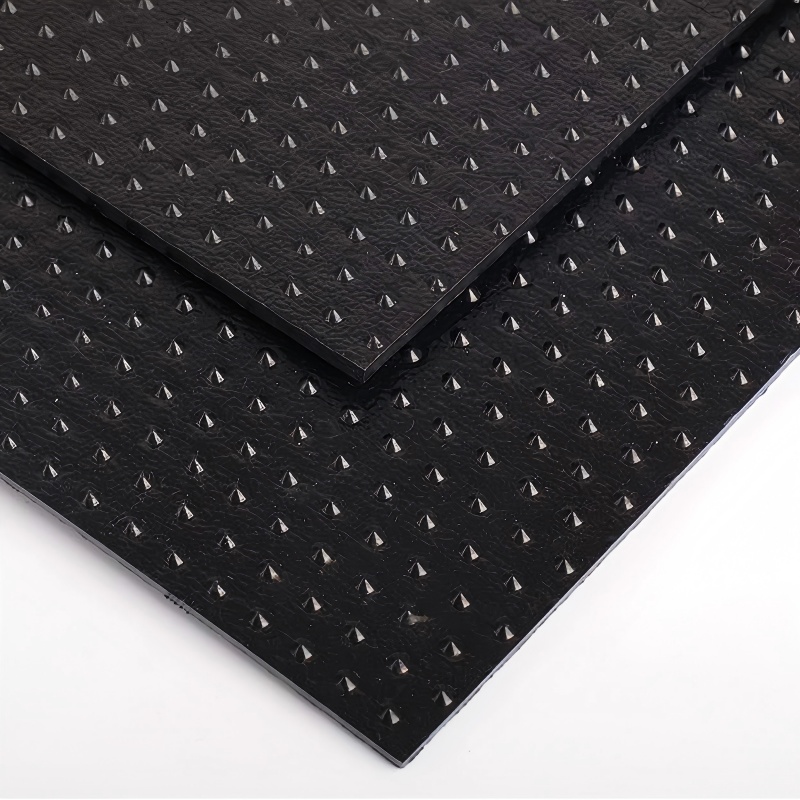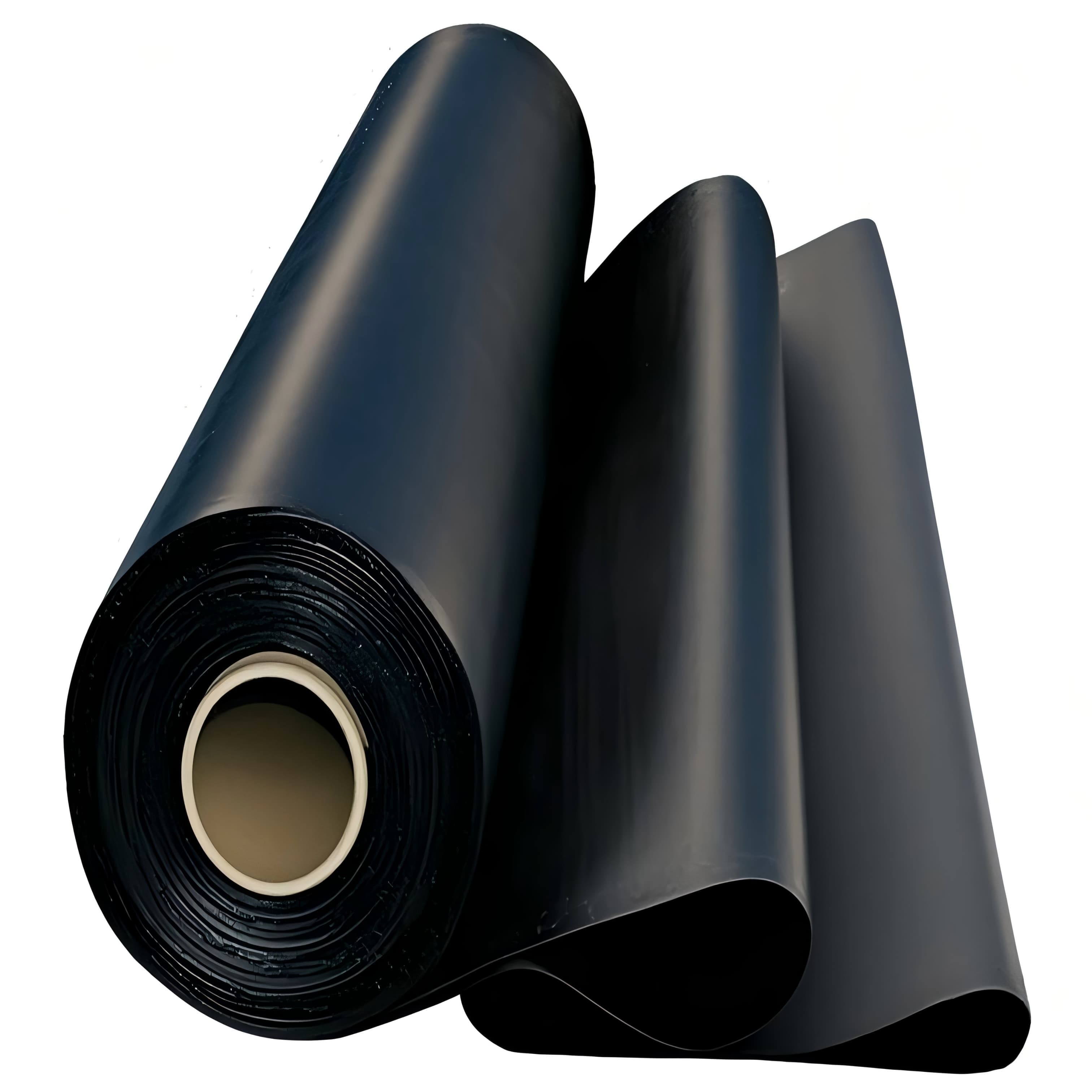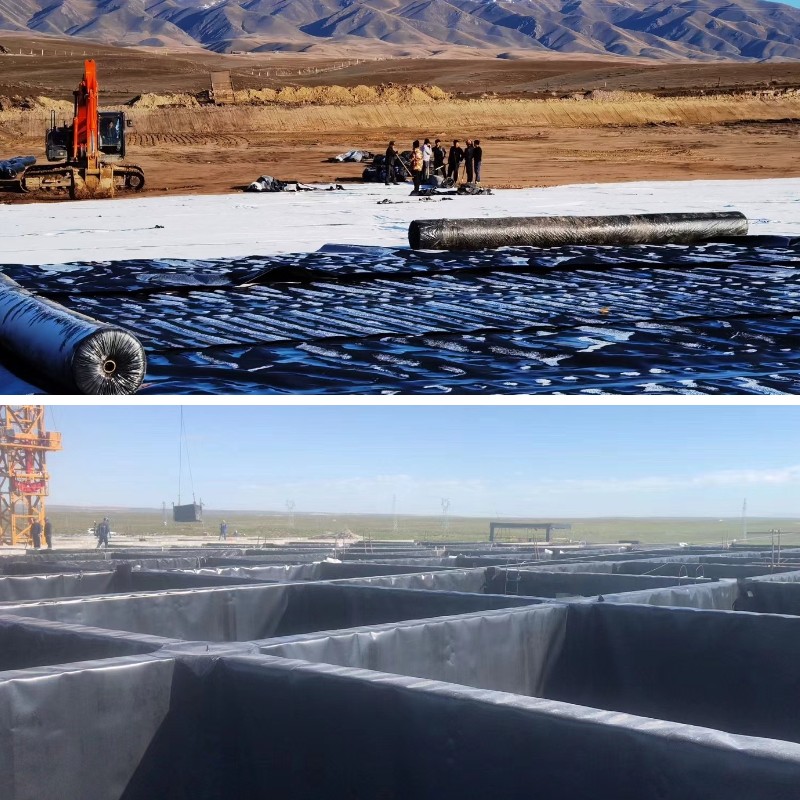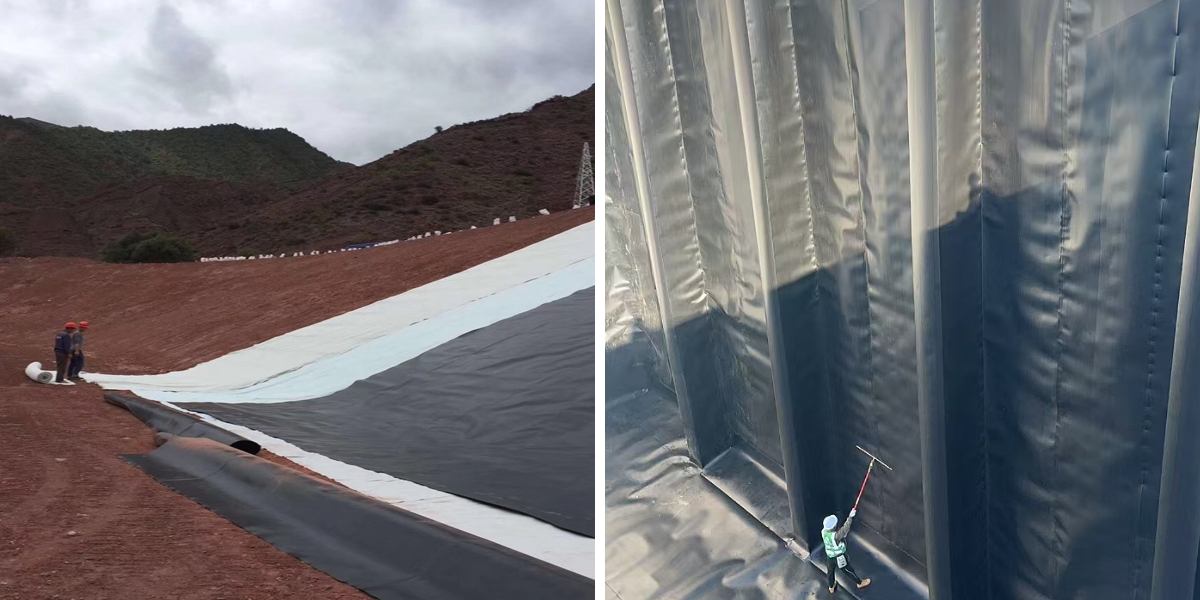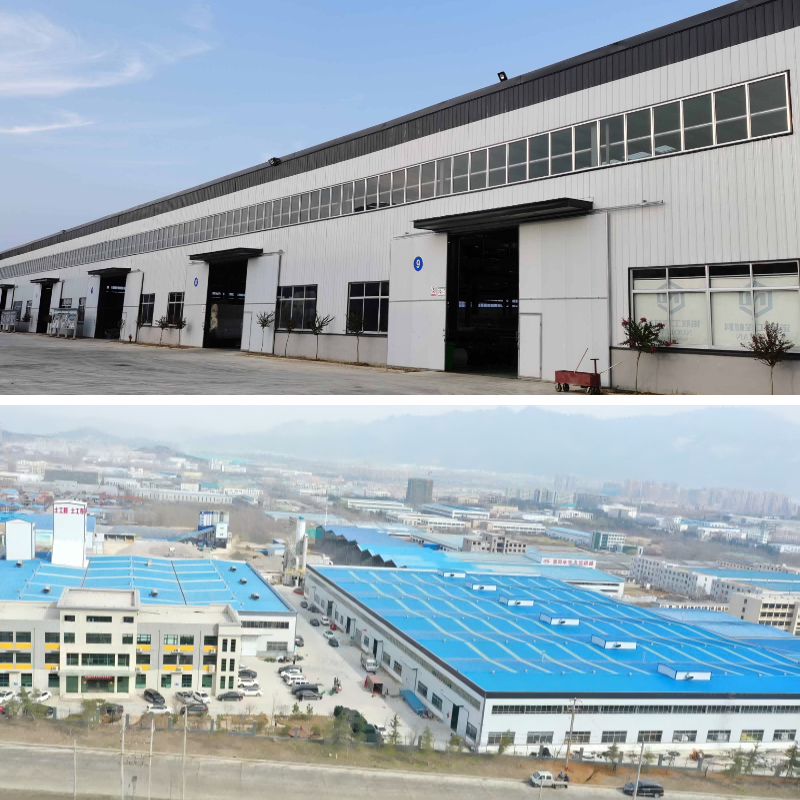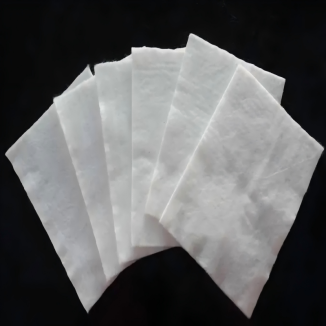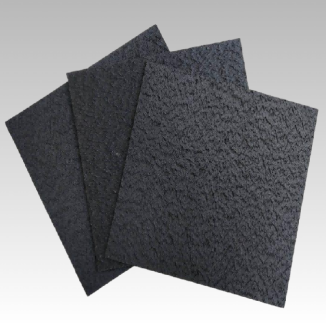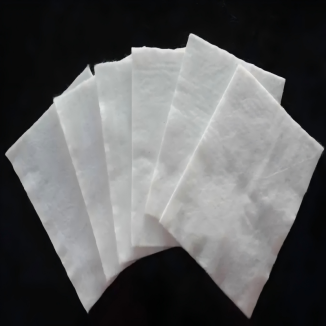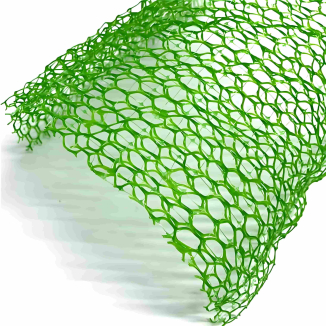Polyethylene Pond
1. Excellent leak-proof sealing:minimizing water leakage; UV resistant, corrosion resistant, and long service life.
2. Excellent flexibility adaptable to various terrains: easy installation without complex engineering requirements, not limited by land resources.
3. Smooth inner wall: preventing bacterial growth and dirt accumulation; simple cleaning and maintenance.
4. Environmentally friendly and recyclable:does not release harmful substances into water bodies, enabling efficient water resource recycling.
Product Introduction:
Polyethylene Ponds are multifunctional products that combine high-quality materials with practical design, specifically designed for modern aquaculture, garden water features, and ecological landscaping. Made from high-strength, food-grade PE material, they offer excellent leak-proof sealing and chemical stability, preventing water leakage and waste while resisting UV radiation, acid and alkali corrosion, and harsh weather conditions, resulting in a lifespan far exceeding that of traditional pond facilities. Their excellent flexibility allows for adaptability to various terrains, including plains and slopes. The modular structure and simple installation process eliminate the need for complex construction and specialized tools, allowing for quick deployment by a single person, significantly reducing labor and time costs. Furthermore, the smooth inner wall prevents bacterial and fouling growth, making maintenance convenient and cost-effective. Combined with a recirculating water system, precise water quality control is achieved, providing a safe and stable growth environment for aquaculture, improving breeding efficiency and product quality, and meeting diverse needs such as garden landscaping and ecological greening. It is a modern pond solution that combines economy, practicality, and environmental friendliness.
Product Parameters:
| Metric | ASTM | unit | Test value | Minimum test frequency | ||||||
| test method | 0.75 mm | 1.00 mm | 1.25 mm | 1.50 mm | 2.00 mm | 2.50mm | 3.00 mm | |||
| Minimum average thickness | D5199 | mm | 0.75 | 1 | 1.25 | 1.5 | 2 | 2.5 | 3 | Per volume |
| Minimum value (any one of 10) | -10% | -10% | -10% | -10% | -10% | -10% | -10% | |||
| minimum density | D 1505/D 792 | g/cm3 | 0.94 | 0.94 | 0.94 | 0.94 | 0.94 | 0.94 | 0.94 | 90,000 kg |
| Minimum average tensile performance (1) | D638 Type IV | |||||||||
| Breakage strength, | N/mm | 20 | 27 | 33 | 40 | 53 | 67 | 80 | 9,000 kg | |
| yield strength | N/mm | 11 | 15 | 18 | 22 | 29 | 37 | 44 | ||
| Strain extension, | % | 700 | 700 | 700 | 700 | 700 | 700 | 700 | ||
| yield extension | % | 12 | 12 | 12 | 12 | 12 | 12 | 12 | ||
| Minimum strength of right-angle tear | D 1004 | N | 93 | 125 | 156 | 187 | 249 | 311 | 374 | 20,000 kg |
| Minimum puncture strength | D4833 | N | 240 | 320 | 400 | 480 | 640 | 800 | 960 | 20,000 kg |
| Constant tensile load stress cracking (2) | D5397 | hour | 300 | 300 | 300 | 300 | 300 | 300 | 300 | Based on GRI GM-10 |
| Carbon black content | D 1603(3) | % | 2.0-3.0 | 2.0-3.0 | 2.0-3.0 | 2.0-3.0 | 2.0-3.0 | 2.0-3.0 | 2.0-3.0 | 9,000 kg |
| Carbon black dispersion | D5596 | Note (4) | Note (4) | Note (4) | Note (4) | Note (4) | Note (4) | Note (4) | 20,000 kg | |
| Oxygen induction time (OIT) (5) | 90,000 kg | |||||||||
| (a) Standard OIT | D3895 | minute | 100 | 100 | 100 | 100 | 100 | 100 | 100 | |
| (b) high-handed OIT | D5885 | minute | 400 | 400 | 400 | 400 | 400 | 400 | 400 | |
| 85℃ Oven aging (minimum average) (5)(6) | Per formula | |||||||||
| (A) Standard OIT is retained after 90 days | D 5721 | % | 55 | 55 | 55 | 55 | 55 | 55 | 55 | |
| (B) High voltage OIT is retained for 90 days | D 3895 D5885 | % | 80 | 80 | 80 | 80 | 80 | 80 | 80 | |
| Ultraviolet resistance (7) | Per formula | |||||||||
| (a) standard OIT | D3895 | Note (8) 50 | ||||||||
| (b) Retention of high pressure OIT after 1600 hours (9) | D5885 | % | ||||||||
Product Applications:
1. Factory-Scale Aquaculture: Suitable for high-density farming of species such as Litopenaeus vannamei, California bass, and mandarin fish. Made of food-grade LLDPE material, it is resistant to water environments with pH values of 2-10 and releases no harmful substances. Equipped with a V-shaped flow-guided dual-drainage chassis and a circulating water system, it achieves a 92% solid particle removal rate, a 98% ammonia nitrogen removal rate, and a 76% reduction in disease incidence. Supports modular array deployment; 60 6-meter diameter farming tanks can achieve an annual output of 250,000 kg, 40 times the output per unit water volume compared to traditional earthen ponds. Water resource recycling rate reaches 99%, and water consumption is only 0.8 tons per ton of fish. It can connect to IoT monitoring systems, with 5G sensors transmitting 12 water quality parameters in real time. Combined with intelligent feeding and temperature control equipment, it enables highly efficient operation and maintenance, allowing one person to manage hundreds of ponds.
2. Garden Landscape Design: Customizable with various shapes such as circles, ovals, and natural irregularities, suitable for styles including Chinese Zen, modern minimalism, and natural wildness. The container has a uniform wall thickness and high flexibility, allowing it to be placed directly on flat ground or slopes in the courtyard without the need for a hardened foundation. It can be combined with dynamic elements such as waterfalls and fountains, or planted with aquatic plants like lotus and water lilies, along with wetland plants such as cattails and reeds, to create a richly layered ecological waterscape. The smooth inner wall prevents algae and dirt growth, requiring only simple daily cleaning. A small filtration system can maintain water clarity, while the water can regulate the courtyard's microclimate, increasing air humidity and lowering summer temperatures.
3. Agricultural Irrigation Water Storage:As a high-efficiency water storage container, it is suitable for orchards, greenhouses, farmland, and other scenarios. The material conforms to GB/T 13663-2018 standards, is non-toxic, odorless, and resistant to UV rays and corrosion. Different capacity specifications can be selected according to the irrigation area. It supports long-term outdoor use; buried installation or adding a shading facility can extend its service life. It can collect rainwater or store irrigation water, enabling precise water supply when used with a PE water supply network, reducing water waste. Easy to install, it connects to pipes via heat fusion or quick couplings, and features a drain valve at the end for winter frost protection, adaptable to various climatic conditions.
4. Ecological Restoration Project: Utilizing modular floating islands made of HDPE material, it is applied to the treatment of eutrophic lakes, rivers, and tidal flats. The floating islands can be assembled to any size, and planted with purifying plants such as yellow iris, canna lily, and loosestrife. Through their root systems, these plants absorb nutrients and heavy metals from the water, reducing COD concentration from 120 mg/L to 30 mg/L. It provides a habitat and breeding platform for aquatic organisms, contributing to increased benthic biodiversity and restoring the surrounding ecosystem. Construction requires no large equipment, causes minimal disturbance to the existing environment, allows for flexible layout adjustments, and combines water purification with landscaping enhancement.
Polyethylene Pond, with its high-quality PE material and flexible properties, is primarily used in four major scenarios, each with its own specific advantages: In factory-scale aquaculture, high density, high water conservation, and intelligent operation and maintenance significantly improve yield and efficiency; In garden landscaping, it can be customized into various shapes, taking into account both aesthetics and ease of maintenance, and can also regulate microclimate; In agricultural irrigation and water storage, it is suitable for different planting scenarios, with efficient water storage, convenient installation, and weather resistance; In ecological restoration projects, it purifies water quality in the form of modular floating islands, helping ecological restoration with minimal environmental impact.


